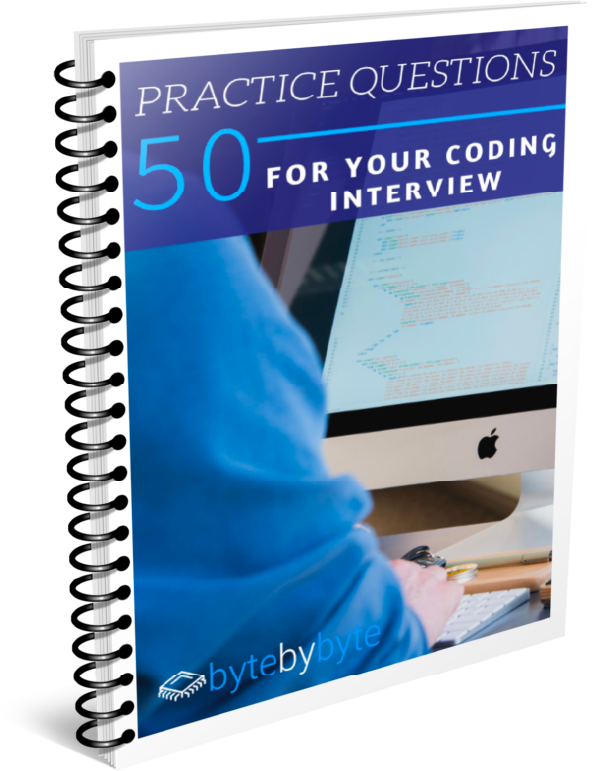
Have you ever met someone who doesn’t procrastinate? I haven’t. Maybe you never procrastinate yourself (I don’t believe you but you’re welcome to keep telling yourself that).
Have you ever told yourself “This time, it’s gonna be different”? You decide you’ll finish studying for your interviews way ahead of schedule. You create a beautiful plan to get everything done that you follow for exactly one day before it goes by the wayside.
The problem with interview prep is: It SUCKS. There’s no way around it. No one wants to spend hours just going through practice problems.
And just as much as it sucks, studying is also really important. Your interview is like that huge final exam at the end of the semester, but even more so. The interview is worth 100% of your final grade.
If you want to do well, you’d better study.
So how can you beat procrastination and get the job done? Luckily, there are people who actually research procrastination so there are proven solutions. Here are five things you can try when you REALLY don’t want to pick up that book.
Figure out why you’re procrastinating
It turns out that there are only a couple of different reasons why people procrastinate. If you can figure out which of these is you, then you can take concrete steps to counteract your hangups.
These reasons include:
- Fear of failure
What happens if you put a ton of work into studying and then fail? It feels like you’re just a failure and even your best isn’t good enough. If you procrastinate, though, you can blame your failure on something else. “Oh well I just didn’t have enough time to study.” - Fear of success
If you do really well in your interview, people are going to expect a lot from you. What if you get the job at Google and then do a bad job? “Maybe I should just get a job that I know I can do.” - No time pressure
Have you ever stayed up all night the assignment was due and done the whole thing even though you had weeks to work on it? Why couldn’t you just crank it out weeks in advance? Time pressure is very motivating. “Oh I’ll just do it later.” - Lack of clarity
It’s really hard to do a task if you don’t know what you’re doing. Especially for something large and involved, it’s so much effort to even figure out what to work on that it can be really hard to get started. “I don’t even know where to begin.”
Although there are some other possible factors as well, these are the core issues, particularly when it comes to chronic procrastination. These are the things that will stop you from making progress even if you’re otherwise well rested and ready to go.
When you recognize which of these issues are holding you back, you can start to compensate for them. That can be as simple as just saying, “I know I’m afraid of failing, but what’s really the worst that can happen?” or setting yourself artificial deadlines. Recognizing why you’re procrastinating can make overcoming it a whole lot easier.
Recognizing why you’re procrastinating can make overcoming it a whole lot easier. Click To TweetThe 10 minute rule
Often the hardest thing about doing a task is just sitting down and getting started. It’s so easy to just keep saying you’ll play one more round of Smash or stick around to watch the game for “just one more drive” and then end up wasting the whole time you meant to be studying.
While it’s true that almost everything is more fun than studying, you have to do it. It’s really tough, though, when you have to commit to some long period of studying. Once you sit down to study, you want to force yourself to do a whole hour or two or three, and that makes it so hard to motivate yourself to sit down in the first place.
The 10 minute rule gets around that.
With the 10 minute rule, you make a deal with yourself to sit down and study for 10 minutes. After 10 minutes, you can go off and do whatever you want. However, you are allowed to keep working for as long as you want beyond 10 minutes.
This technique works in several ways. First, the activation energy is low. It’s not that hard to commit to only 10 minutes. Second, if you do 10 minutes per day, that’s way better than none. And finally, oftentimes, the hardest part is just getting started. Once you get going, it is very likely you’ll realize that the studying isn’t so bad and decide to go beyond the allotted 10 minutes.
Plan ahead
It’s really hard to study without any sort of plan, and yet I see people doing it all the time. They assume that following Cracking the Coding Interview or going through problems on Leetcode is a plan, but it’s not. At best it’s just a rough outline of things to cover.
When I say to make a plan, I really mean to write out a plan. What are you going to study when? How much time are you going to spend on different topics? What practice problems are you going to do?
This may seem obsessive, but if you take the time to do it right, it can really help with procrastination. You no longer have the excuse of not knowing what to work on or being able to say “let me just do it tomorrow”. With a plan, you know what to do and you know when to do it.
Make a bet with someone
One of the best ways to stay motivated is by setting stakes. If I said that you have to study for an hour or pay me $100, my guess is that you would be much more motivated to sit down and study.
There’s something particular about the psychology of loss that really gets us motivated. Even more than earning money for doing the right thing, no one wants to lose money for doing the wrong thing (or lose money at all). By making a bet, you can really force yourself to get stuff done.
Making bets can be approached in several ways. If you have a friend, you can just agree to pay them or have them hold you accountable to donating to their favorite charity or something. If they’re also preparing for interviews, even better, because you can both bet each other and hold the other accountable.
If you feel weird about betting with your friends, though, there are still options. For example, sites like Stickk allow you to automatically handle the stakes and you just need someone to be your referee.
Although it may seem odd, making bets is a surefire way to keep yourself on track.
Schedule your interview
Do you constantly tell yourself that you have plenty of time to prepare?
Especially for those of you who already have decent jobs, there’s no immediate need to interview for other companies. Sure it would be nice to make that step up, but you could really do that whenever.
That attitude makes it so easy to put off preparing and interviewing indefinitely. That’s really too bad.
The longer you stay at a job you don’t love and don’t pursue a better opportunity, the harder it will be to ultimately change. You can easily waste years of your life being unhappy just because it’s the easy way out.
Don’t let that be you.
The easiest forcing function of all is just to schedule the damn interview. If you have an interview coming up, it’s so easy to find the time to really prepare. If you suffer from lack of time pressure, this is the best possible way to give yourself a kick in the butt.
And what’s the worst that can happen? If you interview poorly, you don’t get banned from ever interviewing at a company again. Most companies make you wait 6 months or a year, but that’s nothing in the grand scheme of things. And think of the upside if you do get the job!
Even though it may be scary, there comes a time when you just have to do it. Schedule your interview and then use that deadline to motivate you.
If you ever feel like you’re the only one procrastinating, you’re not. If you ever feel like you’re never going to be able to motivate yourself to get your studying done, you will.
Procrastination happens to the best of us and the most important thing is to have strategies to deal with it when it happens. By understanding why you’re procrastinating and applying the strategies above, you can break through the procrastination barrier to get where you really want to go.



